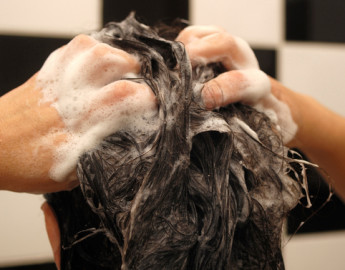Psoriasis treatment: Coal tar

It costs less than most psoriasis treatments
It can be used long term
Why do dermatologists prescribe coal tar for psoriasis?
Coal tar can effectively treat:
Plaque-type psoriasis
Itch
Scalp psoriasis (especially if itch is the main symptom)
Difficult-to-treat psoriasis on the palms and soles
Scale
Your dermatologist may prescribe coal tar alone or include it as part of a treatment plan that includes other medicines, phototherapy, or both.
Safety and effectiveness
Safety: Dermatologists have been prescribing coal tar for more than 100 years to treat psoriasis, and it is considered safe for long-term use.
Like all medicines, some patients should avoid coal tar. Women who are pregnant or breastfeeding may want to use a different treatment. We have too little information about how coal tar can affect an unborn baby or a child who is nursing.
People who are sun sensitive or take medicine that makes them more sensitive to ultraviolet (UV) light should also use a different treatment.
Effectiveness: Coal tar can be very effective. Some people see complete clearing with coal tar and long remissions (time without psoriasis).
Many patients who have difficult-to-treat psoriasis on their palms and soles (palmoplantar psoriasis) see clearing when they use coal tar along with a corticosteroid that they apply to their psoriasis.
Dermatologists also include coal tar in a treatment plan for patients who have scalp psoriasis. Coal tar can clear scalp psoriasis and increase remissions on the scalp.
How well coal-tar products work varies. You cannot always tell which product will work best by looking at how much coal tar the product contains. In one study, patients using a lotion containing 1% coal tar had better results than the patients using a product that contained 5% coal tar extract. Other studies have found similar results. For this reason, it’s best to ask your dermatologist for a product recommendation.
Coal tar warning
Never apply coal tar to your genitals or rectum unless your dermatologist recommends doing so.

Does coal tar cause cancer?
In California, you’ll find cancer warnings on some coal tar products you can use to treat psoriasis. This warning was added to products in California due to:
Animal studies (where the animals were exposed to a lot more coal tar than we would use to treat psoriasis)
Occupational studies (where a person works with industrial coal tar)
To date, studies fail to show an increased risk of cancer in people who use coal tar to treat psoriasis or atopic dermatitis (eczema). People who work with industrial coal tar, however, have an increased risk of developing cancer of the lungs, scrotum, and skin.
How to use
You’ll find coal tar in many different products used to treat psoriasis. Coal tar can be an effective treatment for scalp psoriasis and is found in psoriasis shampoos. You’ll also find it in bath solutions, ointments, and many other forms.
Coal tar shampoo
When using a coal tar shampoo to treat scalp psoriasis, make sure that the shampoo gets on your scalp.

Coal tar can also be applied to the skin with psoriasis. When treating the skin, you massage the coal tar into the psoriasis. Your dermatologist will tell you how often to do this.
To increase the effectiveness of coal tar, your dermatologist may have you wrap the treated area.
Only do this when your dermatologist recommends it. Wrapping greatly increases the strength of coal tar.
Possible side effects
While coal tar has an excellent safety record, it can:
Irritate the skin
Cause a rash or acne-like breakout
Lead to easily burned skin from the sun or a tanning bed because it makes your skin more sensitive to ultraviolet (UV) light
Stain skin, light-colored hair, and clothing
Leave an unpleasant odor
Make hair dry and brittle when used to treat scalp psoriasis
Worsen psoriasis
Immediately stop using coal tar if you develop:
Severe stinging or burning
Swelling
Worsening psoriasis
What to discuss with your dermatologist
It’s important to tell your dermatologist if you:
Have irritated skin or any other side effect
Stop using coal tar
Develop worsening psoriasis
Images
Getty Images
Resources
Cordoro KM. “Management of childhood psoriasis.” Adv Dermatol. 2008;24:125-69.
Feldman SR. “Treatment of psoriasis.” UpToDate 2015 Jul, Wolters Kluwer Health. Last accessed November 2015.
Menter A, Korman NJ, et al. “Guidelines of care for the management of psoriasis and psoriatic arthritis. Section 3. Guidelines of care for the management and treatment of psoriasis with topical therapies.” J Am Acad Dermatol 2009;60:643-59.
Paghdal KV, Schwartz RA. “Topical tar: Back to the future.” J Am Acad Dermatol. 2009 Aug;61(2):294-302.
 Think sun protection during Skin Cancer Awareness Month
Think sun protection during Skin Cancer Awareness Month
 How to care for your skin if you have lupus
How to care for your skin if you have lupus
 Practice Safe Sun
Practice Safe Sun
 Sunscreen FAQs
Sunscreen FAQs
 Fade dark spots
Fade dark spots
 Hidradenitis suppurativa
Hidradenitis suppurativa
 Laser hair removal
Laser hair removal
 Scar treatment
Scar treatment
 Botox
Botox
 Kids' camp - Camp Discovery
Kids' camp - Camp Discovery
 Dermatologist-approved lesson plans, activities you can use
Dermatologist-approved lesson plans, activities you can use
 Find a Dermatologist
Find a Dermatologist
 Why choose a board-certified dermatologist?
Why choose a board-certified dermatologist?